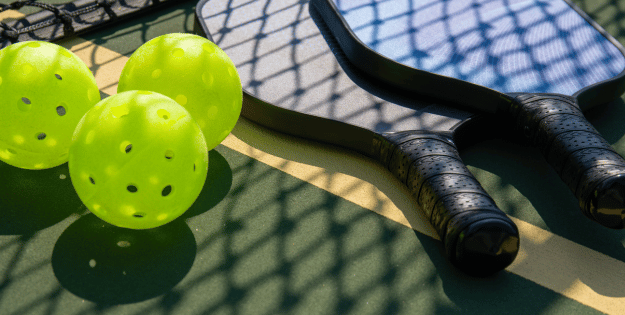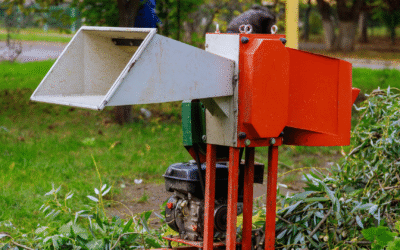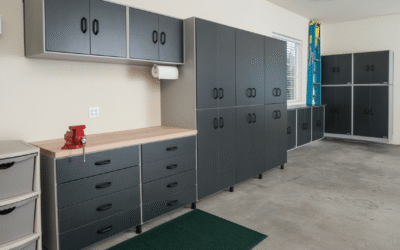Pickleball, a delightful blend of tennis, badminton, and table tennis, has surged in popularity, captivating players of all ages. Its charm lies in its simplicity—requiring minimal equipment to get started. Unlike other sports that demand protective gear and specialised footwear, pickleball players need just a paddle, a perforated ball, and a net. This accessibility is part of what makes the sport so appealing.
While the essential gear is straightforward, the variety of options available can be overwhelming for beginners. With numerous manufacturers entering the market, players are spoilt for choice, benefiting from advancements in technology and design. Whether one opts for individual pieces or a complete set, understanding the basic equipment is crucial for an enjoyable game. This guide will navigate through the essential pickleball gear, ensuring players are well-equipped to hit the court with confidence.
Top Amazon Sellers
Key Takeaways
- Pickleball’s simplicity and minimal equipment requirements, which include a paddle, ball, and net, contribute to its widespread appeal and accessibility.
- Pickleball paddles come in different materials such as wood, graphite, and composite, catering to varied playing styles and skill levels; choosing the right paddle is crucial for performance.
- Pickleballs differ between indoor and outdoor versions, with specific characteristics suited to each environment; understanding these differences is key to gameplay.
- Pickleball nets are essential to the game, with portable options providing flexibility and ease of setup; selecting a sturdy and appropriately sized net enhances play.
- Proper footwear designed for multidirectional movement is vital for safety and performance on the pickleball court.
- Additional gear like bags, apparel, and training aids can enhance the playing experience, offering functional benefits and convenience.
Essential Pickleball Equipment
In pickleball, the core items on any pickleball equipment list are a paddle, ball and net. A pickleball paddle features a handle and a large flat surface, crucial for effective gameplay. The paddle’s design varies, with options in size and material to suit different playing styles. The pickleball itself is perforated, providing unique flight dynamics; it differs between indoor and outdoor variants. A net divides the court, similar in height to tennis but specific to pickleball dimensions. Each item is integral to the enjoyment and competitiveness of the game. While these basics suffice for casual play, many players explore additional gear to elevate their performance.
Pickleball Paddles
Pickleball paddles are a crucial part of any pickleball equipment list. Players find paddles made from diverse materials that fit different play styles and skill levels.
Types and Materials
Paddles are available in various types, such as wooden, graphite, and composite. Wooden paddles are heavier, often suitable for beginners, while advanced players prefer graphite or composite for better control and power. Selecting the appropriate material can significantly impact performance.
Choosing the Right Paddle
Players should consider paddle weight, shape, and grip to match their play style. Lightweight paddles offer quick handling, whereas heavier ones provide extra power. The grip comfort, shaped by the circumference and texture, affects control and ease of use. Assessing these elements enhances playing potential.
Pickleballs
Pickleballs, a crucial part of the pickleball equipment list, vary slightly between indoor and outdoor versions to suit different playing environments. Both types meet specific standards for tournament use and are essential for optimal performance.
Indoor vs Outdoor Balls
Indoor balls are softer and lighter, featuring larger and fewer holes for easy control in still air. In contrast, outdoor balls are harder and heavier, with smaller holes to handle wind and robust surfaces.
Ball Specifications
Pickleballs have a diameter between 2.87 and 2.97 inches and contain 26 to 40 circular holes. Approved balls meet regulations for tournament play, ensuring consistent quality and performance on the court.
Pickleball Nets
Pickleball nets are crucial in the pickleball equipment list, tailored specifically to the sport’s unique court size and game dynamics. The net divides the court, facilitating gameplay by maintaining a consistent height.
Portable Nets
Portable nets offer flexibility, allowing players to set up a court virtually anywhere. They include a carrying bag, a mesh net with vinyl edges, and steel tubes forming the base. Easy assembly makes them ideal for those frequently changing playing locations.
Net Selection Criteria
When selecting pickleball nets, sturdiness, ease of setup, and appropriate height are vital. A stable base prevents the net from toppling over, ensuring it remains taut. A velcro tension system is essential for maintaining correct height and stability during play.
Footwear for Pickleball
Proper footwear is essential in any pickleball equipment list to ensure safety and performance. Specific shoes for pickleball are recommended due to their design for multidirectional movement.
Choosing Pickleball Shoes
Select shoes offering good traction and ankle support. These features help players move confidently and quickly across the court. Prioritising a comfortable fit and breathable materials reduces the risk of blisters and overheating during play.
Additional Gear and Accessories
Beyond the basics, players may enhance their pickleball experience with additional gear. These items provide both functional benefits and convenience, completing any comprehensive pickleball equipment list.
Bags and Backpacks
Players often carry diverse equipment, making organisation essential. Bags and backpacks tailored for pickleball feature compartments for paddles, balls, and personal items. Compact designs ensure easy transportation, while padded sections protect gear. Look for options with adjustable straps for comfort during transit to and from the court.
Apparel Considerations
Appropriate apparel enhances performance by ensuring comfort and flexibility. Players often choose breathable, moisture-wicking fabrics for optimal ventilation during play. Clothing should permit a full range of motion and include features like sweat absorption and durability. Lightweight and easy-to-layer options offer versatility across varied playing conditions.
Pickleball Training Equipment
Enhancing pickleball skills requires the right training equipment, vital for players aiming to improve their game. Players can utilise various aids to enhance their performance on the court.
Popular Training Aids
Players often use equipment such as target markers or court spot markers to improve shot accuracy and court awareness. Ball machines offer repetitive and varied drills, beneficial for practice without a partner.
Conclusion and Top Picks
Pickleball’s charm lies in its simplicity and accessibility, yet choosing the right equipment can make a significant difference in a player’s experience. From selecting the ideal paddle and ball to picking the perfect net and footwear, each decision contributes to enhancing gameplay and enjoyment. As players advance, exploring additional gear and training tools can further refine their skills and elevate their performance. By understanding the essentials and making informed choices, anyone can step onto the court with confidence and fully embrace the dynamic world of pickleball.
Frequently Asked Questions
What equipment do I need to start playing pickleball?
To start playing pickleball, you’ll need three core items: a paddle, a pickleball, and a net. The paddle has a handle and a large flat surface and comes in various materials. Pickleballs are perforated and differ for indoor and outdoor play. The net is specific to pickleball dimensions. Additional gear, such as court shoes, can enhance performance, but these basics are sufficient to get started.
What is the difference between indoor and outdoor pickleballs?
Indoor pickleballs are softer, lighter, and have larger holes to offer better control in still air conditions. In contrast, outdoor pickleballs are harder and heavier, with smaller holes to handle wind and rough surfaces effectively. Both types comply with regulations that specify a diameter between 2.87 and 2.97 inches, containing 26 to 40 holes, ensuring consistent play.
How do I choose the right pickleball paddle?
Choosing the right pickleball paddle involves considering its weight, shape, and grip comfort. Wooden paddles are recommended for beginners due to their affordability and durability. Advanced players often prefer graphite or composite paddles for better control and power. Selecting a paddle that suits your playing style can significantly affect your performance and enjoyment on the court.
Are there special shoes designed for pickleball?
Yes, shoes specifically designed for pickleball provide the necessary support for multidirectional movements essential during play. These shoes offer good traction and ankle support to ensure safety and performance on the court. It’s important to choose footwear that fits well, is breathable to prevent blisters, and provides comfort for extended playing periods.
What should I consider when selecting a pickleball net?
When selecting a pickleball net, consider factors such as sturdiness, ease of setup, and the appropriate height according to pickleball standards. Portable nets with a stable base and a velcro tension system are highly recommended for maintaining stability and correct height. Such features ensure the net remains in place during play, offering flexibility to set up a court anywhere.




























